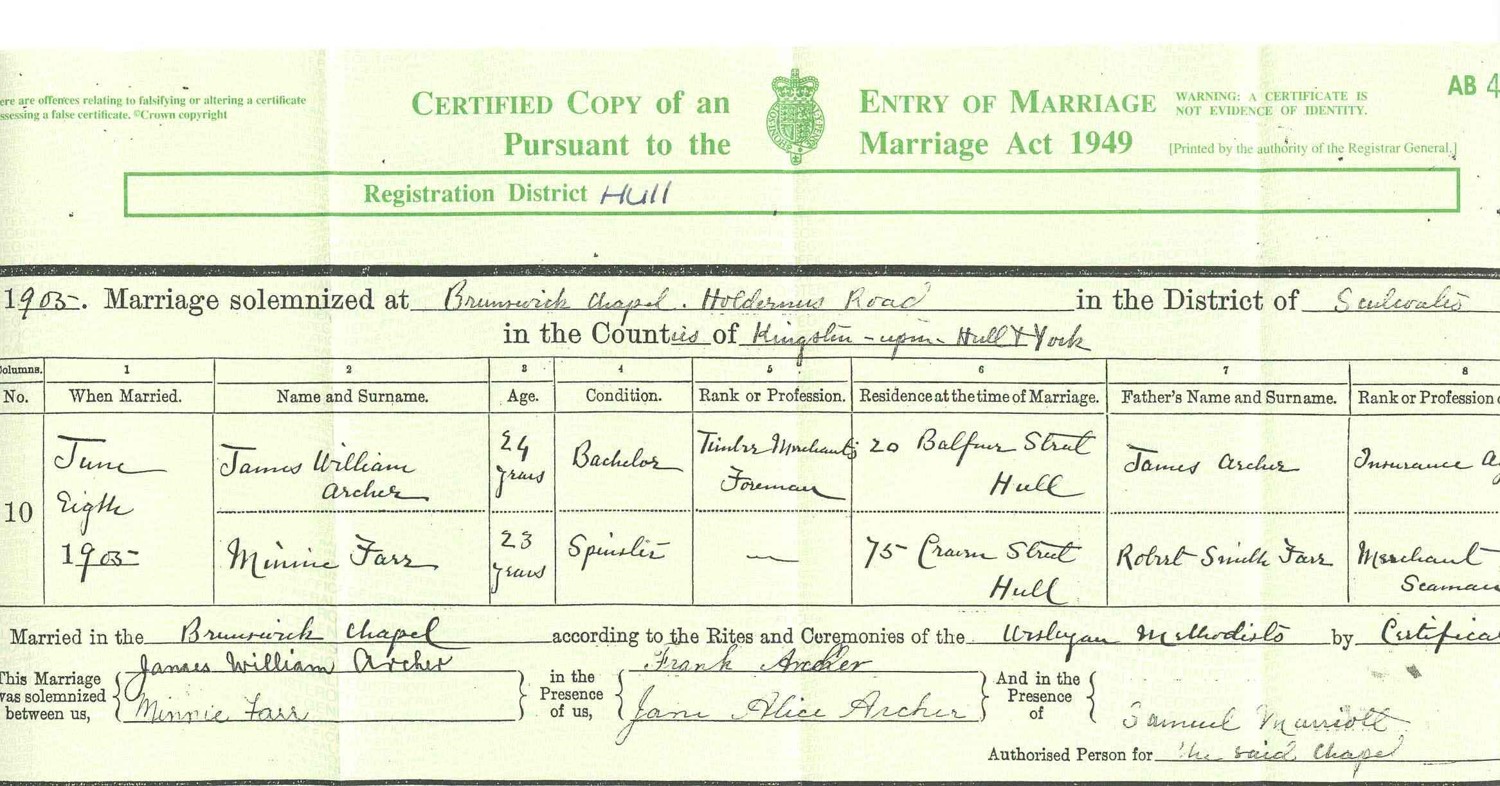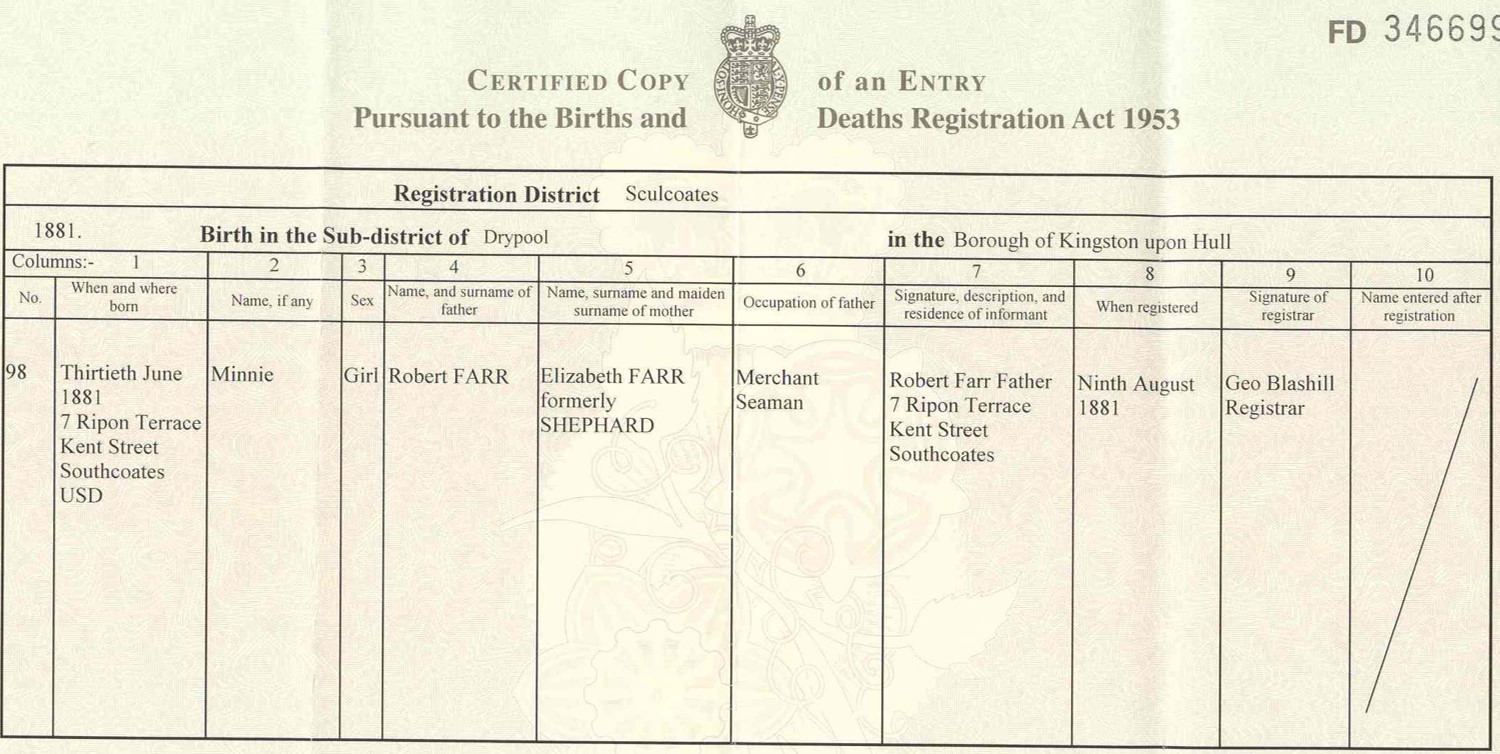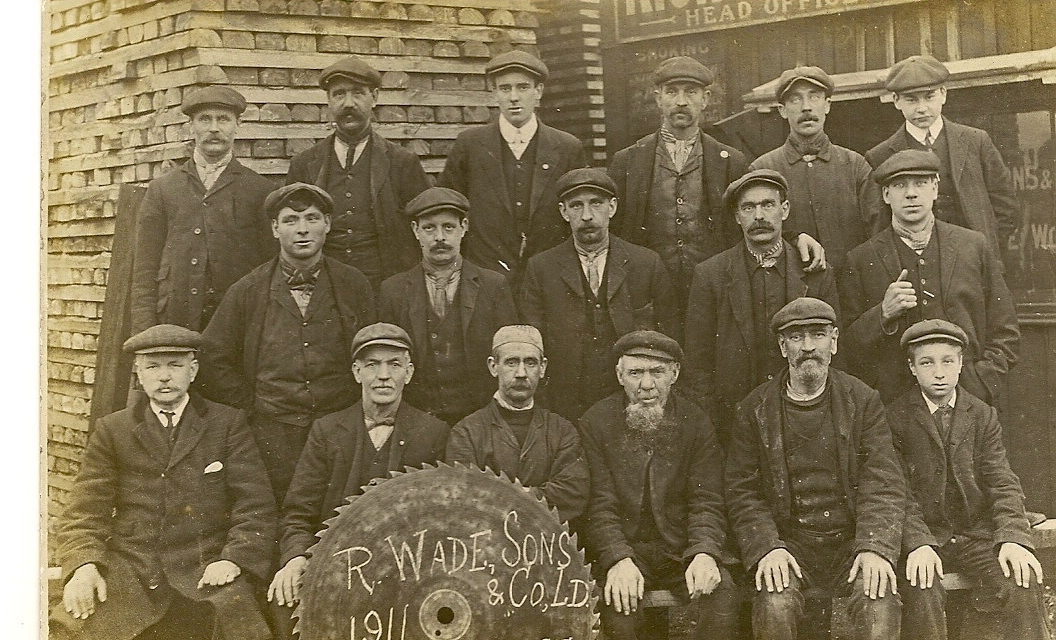Thinking of Starting Family History? Births, Marriage and Death Certificates
- 2nd May 2020
 Alongside the census the other key source for family historians is Civil Registration – birth, marriage and death certificates. These are important because they provide details about people – names, dates, places, occupations and family members. These provide information about people as well as clues as to who and where to look next.
Alongside the census the other key source for family historians is Civil Registration – birth, marriage and death certificates. These are important because they provide details about people – names, dates, places, occupations and family members. These provide information about people as well as clues as to who and where to look next.
Civil Registration began in England and Wales in 1837 (Scotland and Ireland have separate, but similar, systems). Everyone should be on, using them should help you get back to the mid 19th century.
Birth Certificates – All births have to be registered (although for the first few years it was down to the Registrar to locate and record). They provide name of child, date of birth, parents names including Mother’s maiden name (really useful for going back the next step), where it took place and where they lived. Sometimes people only purchased a short birth certificate which only has some details, and that may be what gets handed down, but you can still obtain a full one.
Marriage Certificate – gives the date of wedding, full names, ages, marital status, occupations, address and father’s name and occupation for both bridge and groom. Location of wedding and witnesses are given.
Death Certificate – name of deceased, date and cause of death, address, name and address of informant. People differ as to whether they get every death certificate. They may provide little extra than what is already known so some only get if there was suspected to be an unusual death or there were other details needing checking out.
Do you believe everything you read? Some details may be different from what you expect. People may be called by their middle name or another name, ages may be approximate, and whoever filled in the form may have misheard or made a mistake.


Birth certificate. Copies may either be photocopies, complete with original handwriting, or else typed.
Obtaining certificates
The best thing to do is see whether any old certificates can be located among family members. They often get handed down, and it is worth asking around – a good excuse when we’re socially isolating for ringing and seeing how people are.
Copy certificates can either be obtained from the local Register Office (different to Record Offices – sound similar and we have the indexes, but don’t have the certificates) where it took place, or nationally from the General Register Office’s Southport office. They cost around £11 – if you see anyone quoting a lot more then ignore them.
To get a certificate you will the name(s), the year/quarter and district. You can find these on the GRO Indexes
Searching the GRO Indexes
Until a few years ago people had to either search the indexes in big books in St Catherine’s House, London, or else on microfiche in places like ourselves (we still have them just in case!).
Nowadays the indexes have been digitised and most people search them online.
Beware – the indexes are very brief and only give the name, district (can cover a wide area), year and quarter when registered. After 1911 they also add Mother’s maiden name (births), spouse’s surname (marriage) and age at death (death). This can make it a bit tricky as it is more limited than people expect. The people who digitised the indexes only used the index books so have never seen the full certificates, which have to be ordered.

Part of index – note the very brief information.
The main websites are:
www.freebmd.org.uk – website created by volunteers, so is free to use. However only goes up to 1980s and the search system is rather basic. The fact it is free can be helpful though.
https://www.gro.gov.uk/gro/content/certificates/menu.asp – the official GRO website has birth and death indexes as well as being able to order via the website. You need to register first
https://www.ancestrylibraryedition.co.uk/ – this family history website has got the indexes on it’s website. As the website has 20 billion records it is worth going to the birth/marriage/death section. Usually just free in The Hive, it is currently free to use at home too, see here for details.
www.findmypast.co.uk – another big family history website which has the indexes. Again it is free to use at home whilst we are closed. See here for details.
Once you have the details you can send away. Once the certificate comes back this should provide information for searching for the next person/event, and then send away for that. A lot of family history is lots of little steps like this.
As you’d expect there may be delays in responding to orders due to the current health situation.

I Can’t Find Them!
Not an uncommon statement by our visitors. A few things to think about:
- The indexes aren’t perfect. A small % didn’t get on. Names may have been misread or misheard.
- People may not be where you expect, or may have slightly different names
- Births had to be done within 6 weeks, so could tip into another quarter or year. However some people took a lot longer to get round to it and some births are a few years later, which is not where you might be expecting!
- Check the census so see if that might provide clues.
Scotland
These can be searched for an seen on www.scotlandspeople.gov.uk, which is an official Scottish Government site and is pay-per-view.
Ireland
Indexes are on Ancestry.co.uk and can then be obtained from the Republic or Northern Ireland depending on location.
Good luck in your searching! We’ll be rerunning our workshops when we are able to reopen.
Post a Comment